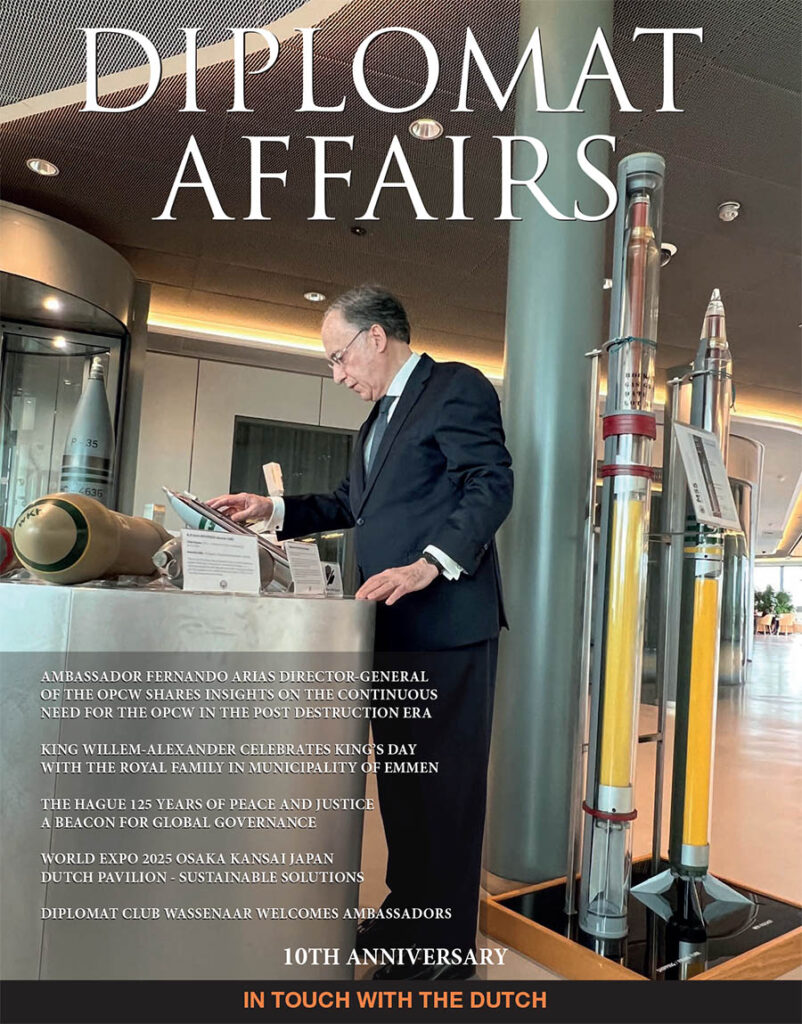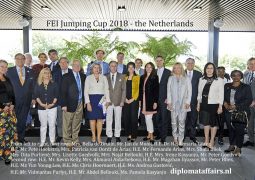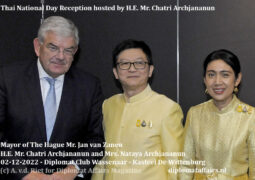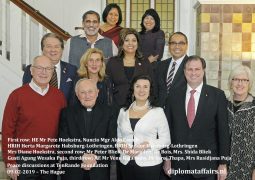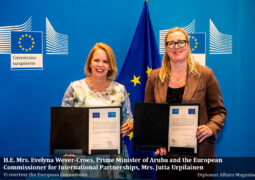In the Post Destruction Era, a Continuous Need for the OPCW
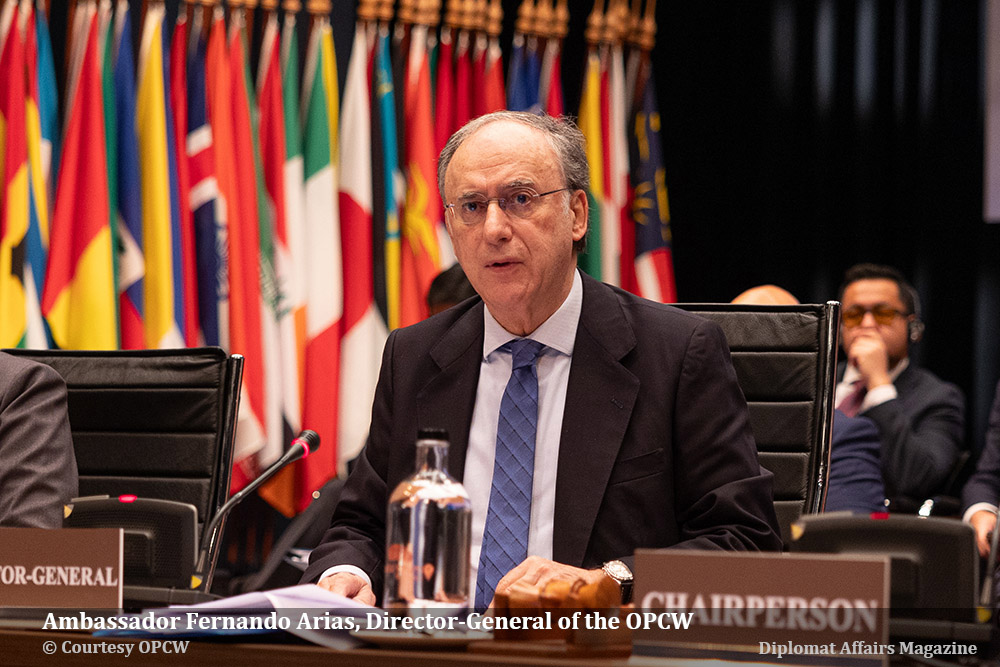
Photo taken during an intervention of the Director-General, Ambassador Arias, during the Conference of the States Parties (27 November to 1 December 2023)
BY AMBASSADOR FERNANDO ARIAS, DIRECTOR-GENERAL OF THE OPCW
April 2024
Last year, the Organisation for the Prohibition of Chemical Weapons (OPCW) marked the 30th anniversary of the opening for signature of the Chemical Weapons Convention (CWC) after lengthy negotiations between various stakeholders.
The founders of the CWC envisioned the OPCW’s primary mission as overseeing the elimination of all Cold War-era chemical weapons stockpiles.
That milestone was reached in July 2023, through the tireless work of a generation of diplomats and experts over the past 26 years.
More than 72,000 metric tonnes of declared chemical warfare agents were irreversibly destroyed under the OPCW verification regime. The complex process of destruction of these agents turned out to be more difficult and expensive than their production, because of the need to ensure the safety of people and the protection of the environment.
For its work, the OPCW was awarded the Nobel Peace Prize in 2013.
Some presumed that the OPCW would no longer be needed after the end of the destruction. Events have proven them wrong.
Today’s world is very different from that of the 1990s. Political tensions, international crises, and wars make media headlines each and every day.
Over the past 10 years, the use of chemical weapons both by States and by non-State actors has become a reality. In these instances, the OPCW met the expectations of the international community, in accordance with its mandate, by gathering facts, analysing, and investigating, and by identifying perpetrators, and including the results of such activities in the many reports that the Organisation has produced.
New developments, such as technological advancements, including artificial intelligence and additive manufacturing, make our work more complex. New and more toxic chemicals can be produced faster, cheaper, and more covertly, and be delivered in a more lethal way.
These are a few of the reasons why the OPCW must continue to work on this open-ended agenda, to combat any re-emergence of chemical weapons.
OPCW Member States must work together now more than ever before. The OPCW Technical Secretariat must preserve its traditional chemical demilitarisation knowledge, together with new expertise, including in forensics, biotechnology, and other scientific fields to address new challenges in the so-called post-destruction era.
In anticipation of this new phase, the Technical Secretariat of the Organisation, supported by Member States, embarked already five years ago on an ambitious project—the new Centre for Chemistry and Technology (ChemTech Centre).
The ChemTech Centre is located near The Hague in the municipality of Pijnacker-Nootdorp and was inaugurated on 12 May 2023 in the presence of His Majesty King Willem-Alexander, Ambassadors, and High Authorities of the States Parties.
The ChemTech Centre is already operational. It houses a multipurpose central area, a state-of-the-art laboratory, a technology and training hub, and new training facilities. It provides an inclusive global platform and powerful new tools for analysis, research, and training.
The implementation of the Convention must be carried out by each one of its 193 States Parties.
Therefore, it is essential to enact specific national legislation to ensure that the competent authorities of each country (judges, chemical industry, police, customs officials, etc.) can implement the provisions of the Convention.
Looking forward, the OPCW will continue to upgrade its capabilities and knowledge related to its equipment and experts. These efforts, which aim at fostering international cooperation and at enhancing the national capacities of OPCW Member States, are vital in the quest to eradicate the threat of misuse of toxic chemicals by anyone, anywhere, and at any time.
A world free of chemical weapons will require constant vigilance and unwavering commitment from us all.
- Previous The Hague: 125 Years of Peace and Justice – a Beacon for Global Governance
- Next King Willem-Alexander and Queen Máxima Attend 80 Years of Freedom Commemoration
You may also like...
Sorry - Comments are closed

